Nest of 3,000 Asian Hornets destroyed
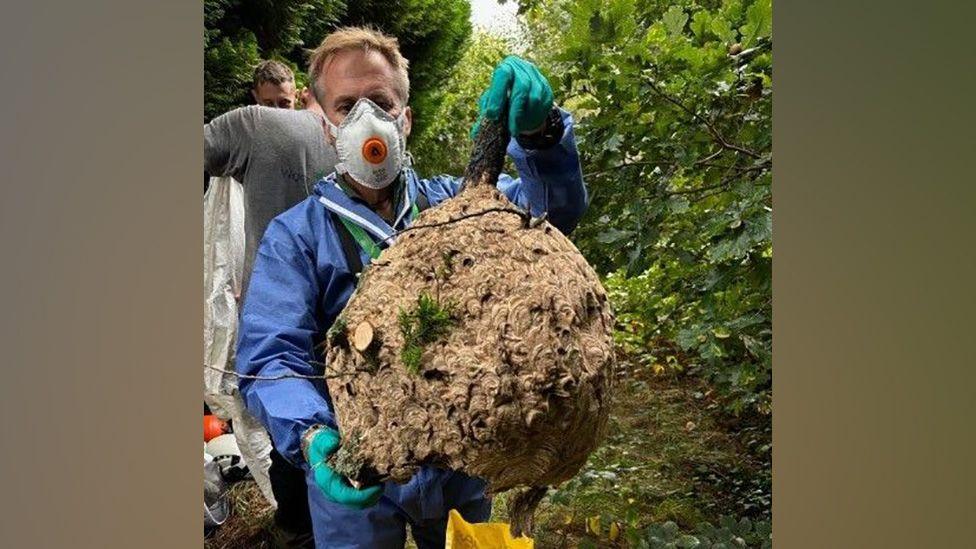
The British Beekeepers' Association, said the nest could hold about 3,000 hornets
- Published
One of the biggest Asian Hornet nests to be discovered this year has been destroyed.
It was found in a tree in Southampton's Old Cemetery and removed by experts from the Government's National Bee Unit on Tuesday.
Asian Hornets pose no greater risk to human health than native hornets, but are a threat to honey bees and insect pollinators, according to the Bee Unit.
Alan Baxter, from the British Beekeepers' Association in Hampshire, said the 75cm-wide (2ft 4in) nest could hold about 3,000 hornets.
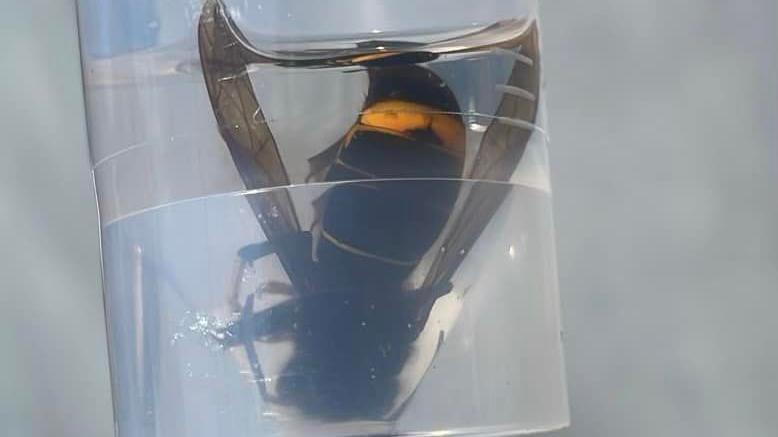
A Southampton resident used the Asian Hornet Watch app to report an insect she found in Shirley
He said the hornet species was "an efficient apex predator" of insects.
Mr Baxter added they were bad for the country's biodiversity but also the economy and could impact on "people who derive their living from growing food" and rely on pollination.
Joe Murphy, a beekeeper from Southampton, who runs Holly Hill Honey, described the discovery as "worrying".
He said: "Our pollinators can’t live with them and will just be decimated.
"They will wipe everything out and just keep on spreading."
He said he was fortunate to have hives in Southampton, the New Forest and Locks Heath but knew some honey businesses might not be so lucky.
"They can clear out a hive in a day and can completely end beekeeping businesses," he said.
Alan Baxter told BBC Radio Solent presenter Lou Hannan how the nest was destroyed
At this time of year, Asian Hornets may congregate on flowering plants such as ivy but can also be seen eating fruit within gardens, orchards and vineyards.
Sightings of the black bodied, yellow legged hornets can be reported via the Asian Hornet Watch App, external.
Users send pictures of suspect insects to experts at the National Bee Unit.
The nest in Southampton was found after a local resident used the app to report the discovery of a lone Asian hornet she saw in Shirley on 19 September.
Experts will now carry out tests on the nest to establish whether there could be more of them in the area.
The National Bee Unit found and destroyed 72 nests last year, the majority in south-east England.
Poor weather at the start of this year means 18 nests have been found and destroyed so far in 2024.
The nests are destroyed over a few days after they are injected with an insecticide from a safe distance.
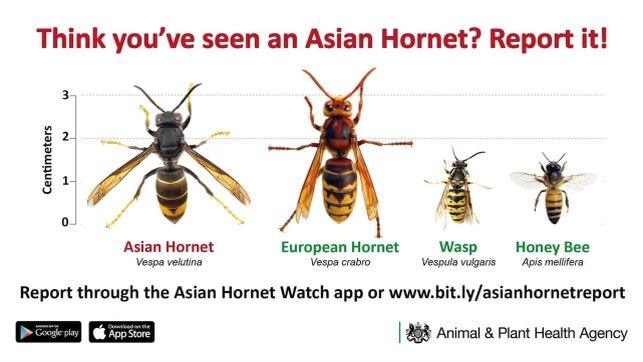
People can use an app or website to report Asian Hornet sightings
Get in touch
Do you have a story BBC Hampshire & Isle of Wight should cover?
You can follow BBC Hampshire & Isle of Wight on Facebook, external, X (Twitter), external, or Instagram, external.
- Published20 May 2024
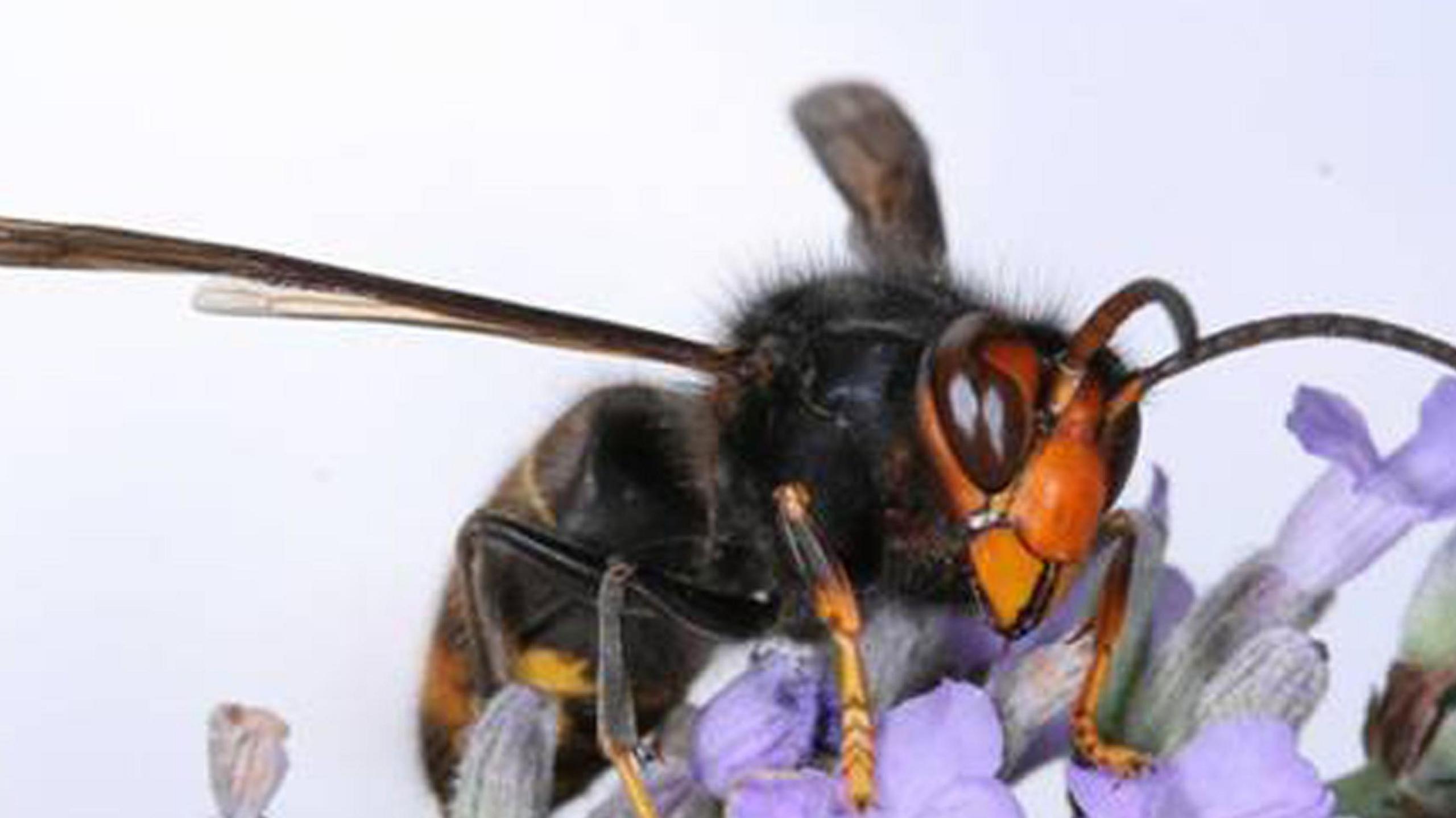
- Published6 September 2024
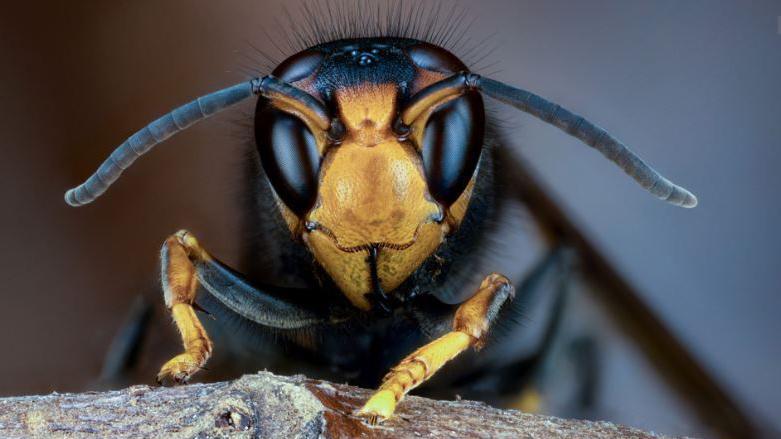
- Published19 March 2024
